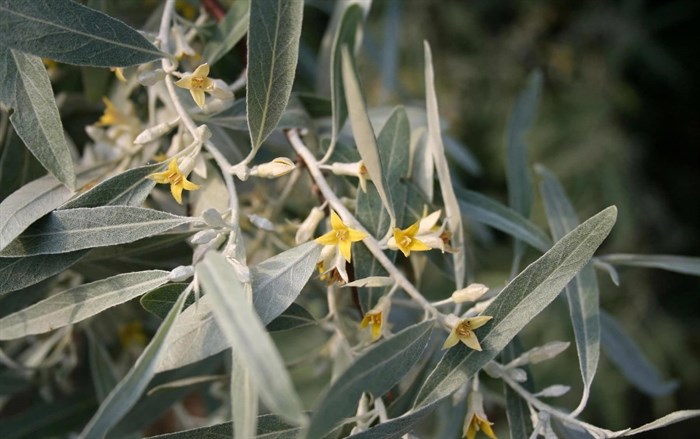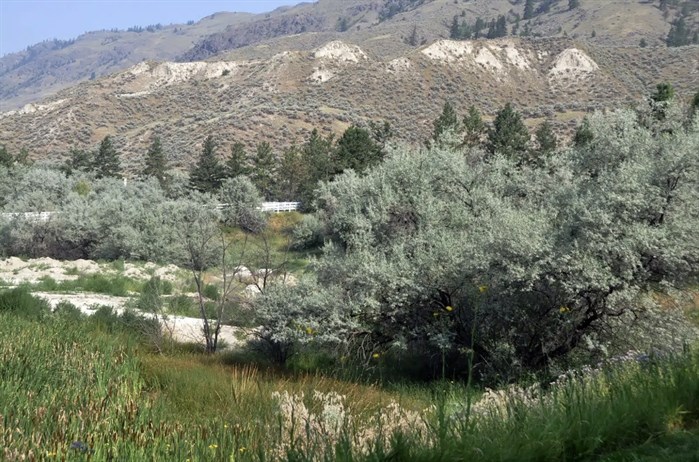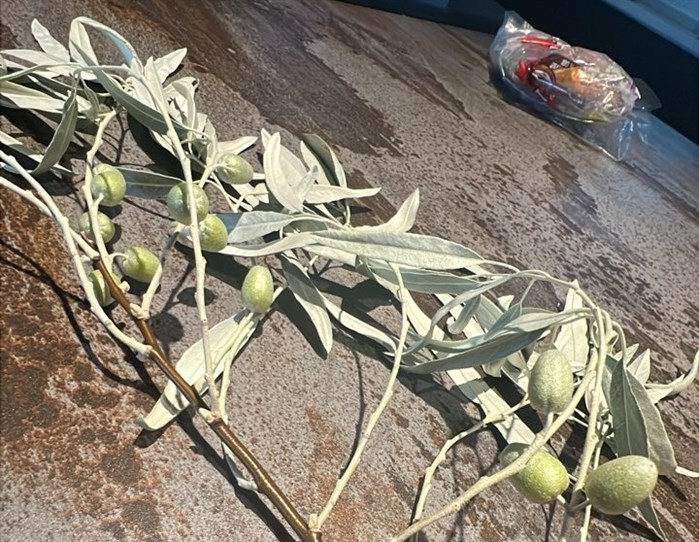
Flowers on a Russian olive tree.
Image Credit: Invasive Council of BC / N. Frank
August 10, 2025 - 9:00 AM
The Russian olive tree is admired for its silvery leaves, yellow fragrant flowers and fleshy fruit that look like olives.
The trees grows wild throughout the Okanagan and Kamloops, and are also available for purchase as ornamentals at numerous garden centres, used to accent landscapes, and provide shade and screening.
Considered to be drought-tolerant, the tree is adaptable to dry and moist conditions and can be used in xeriscaping, according to Art Knapp's website. It is highly tolerant of urban pollution and thrives in inner city environments.

Russian olive trees
Image Credit: Invasive Council of BC / J. Leekie
The popular ornamental is considered highly invasive by several regional districts and invasive councils in BC.
Native to Europe and Asia, the tree was introduced to North America in the late 1800s as a windbreak tree and since has invaded riparian woodlands where it crowds out native vegetation, threatens native trees and forms dense stands that alters the natural environment, according to Invasive Species Okanagan’s website.
“It has become a major problem in the Pacific Northwest and is considered highly invasive,” reads the website. “In BC, this invasive tree is widespread in the Southern Interior, particularly in the Okanagan.”
The fruit of the Russian olive tree is eaten by birds and wildlife that help to spread the seeds, which can remain viable in the soil for up to three years. It can also spread from stump sprouts and root pieces.
Some people, like Oliver resident Jacqueline Clarissa, enjoy eating the fruit and making teas from the fruit, seeds and leaves. She picks them off of trees growing wild along beaches in the Okanagan.

This clipping off a Russian olive tree in Kelowna shows the olive-shaped fruit.
Image Credit: FACEBOOK / Karen Murray
“I use both the fruit and leaves to make a mild tea, it’s supposed to be good for the skin,” she said. “Once the frost hits, it’s time to pick the fruits, and if picked at just the right time, the little olives are sweet and taste like dates.”
In the past, Clarissa tried utilizing the tree for firewood but said the wood didn’t burn well and gave off a strong, pungent odour.
Invasive Species Okanagan recommends people don’t buy Russian olive trees, immediately remove new seedlings on properties, and refrain from moving contaminated soil to new areas.
To contact a reporter for this story, email Shannon Ainslie or call 250-819-6089 or email the editor. You can also submit photos, videos or news tips to the newsroom and be entered to win a monthly prize draw.
We welcome your comments and opinions on our stories but play nice. We won't censor or delete comments unless they contain off-topic statements or links, unnecessary vulgarity, false facts, spam or obviously fake profiles. If you have any concerns about what you see in comments, email the editor in the link above. SUBSCRIBE to our awesome newsletter here.
News from © iNFOnews, 2025